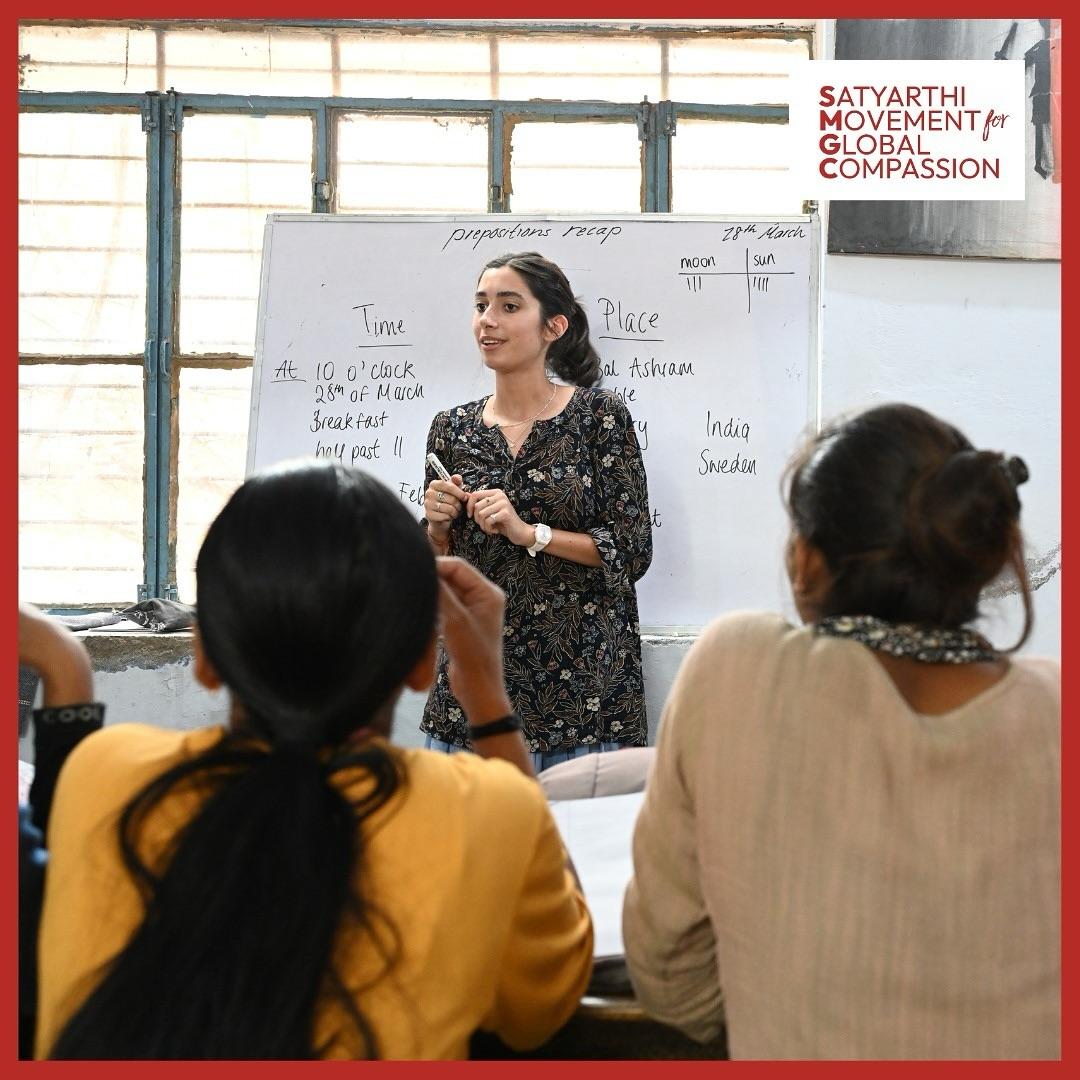Every rescue has a backstory that includes the lengthy, frequently invisible path to recovery as well as the escape from trauma. At the Satyarthi Movement, we think that compassion is more than just a virtue; it is the fundamental factor that gives children the ability to dream anew and reclaim their lost childhoods.
Our founder, Kailash Satyarthi, has been an advocate for disadvantaged children for decades. However, his goal goes beyond simply rescuing kids from abusive situations to include making sure they heal, develop, and prosper. We think that compassion—a profoundly human bond that acknowledges each kid as intrinsically valued and worthy of dignity—is the foundation of true justice.
Rescue Is the Beginning, Not the End
While rescue is a critical first step, what follows is just as vital. Children rescued from slavery, trafficking, and abuse carry deep emotional and psychological scars. They arrive with fear, mistrust, and silence in their eyes. To truly restore their lives, we must meet them with empathy, patience, and understanding.
In our Child Friendly Villages and Bal Ashrams (rehabilitation centres), we create safe spaces rooted in compassion. Here, children are not treated as victims, but as individuals full of potential. Our caregivers, educators, and mental health professionals are trained not just in skill—but in self compassion, so they can extend genuine care while also maintaining their own emotional well-being.
The Healing Power of Compassionate Environments
A nurturing environment can transform a child's sense of identity and possibility. At our rehabilitation centres, children are encouraged to express themselves freely—through play, art, music, and dialogue. These are not luxuries, but vital tools of healing.
Compassion guides our approach to education as well. Many children who come to us have never seen a classroom. Others have forgotten how to hold a pencil. Rather than placing pressure or judgment, our educators use encouragement and adaptability to build confidence. Academic success is not the only goal; regaining the joy of learning is.
Incorporating self compassion into these spaces also empowers children to rebuild their self-worth. They learn that what happened to them was not their fault. They are taught to be kind to themselves—to process pain without shame, and to speak of their emotions without fear.
Empowering Children Through Emotional Recovery
Emotional rehabilitation is a cornerstone of our mission. Many children rescued from trafficking and forced labour struggle with anxiety, depression, and post-traumatic stress. Recognising this, we integrate trauma-informed therapy into their recovery process.
But what sets our work apart is how compassion drives every interaction. Therapy is not confined to formal sessions; it happens in the small, everyday moments—a shared laugh, a reassuring word, a hug of reassurance. Through consistent emotional safety, children begin to trust again. They open up. And in time, they begin to believe in a future that was once stolen from them.
Compassion as a Community Force
We believe that global compassion must extend beyond institutional care. The fight for children’s rights cannot be won in isolation. That’s why we actively involve families, communities, and local leaders in the rehabilitation process.
Reintegrating a child into society is delicate work. We do this through compassionate dialogue, challenging social norms and educating communities on child rights. In some cases, families too need counselling and support. They may carry guilt, shame, or fear. Meeting them with compassion—not blame—creates space for change.
Moreover, our global compassion campaigns build awareness and accountability across borders. From the Global March Against Child Labour to the 100 Million Campaign, we unite people around the world to speak up for every child’s right to freedom, safety, and education.
The Link Between Self Compassion and Social Change
As we advocate for children, we also acknowledge the emotional toll on those leading this work. Our staff, volunteers, and partners are exposed to deeply distressing realities. Without self compassion, the danger of burnout and emotional fatigue is very real.
That’s why we encourage reflection, rest, and peer support within our teams. Self compassion is not selfish—it is essential. By caring for ourselves, we preserve the strength to care for others.
In broader terms, self compassion is the seed from which global compassion grows. A society that honours its own pain with kindness becomes more capable of recognising and responding to the pain of others. If we want a world where no child is exploited, we must first build a world where empathy, humility, and healing are common practice.
A Future Guided by Compassion
The Satyarthi Movement envisions a world where every child is free, safe, educated, and heard. But this vision cannot be achieved through rescue operations alone. It requires a deep cultural shift—one that prioritises compassion as a foundation for every action, policy, and relationship.
Compassion is not a soft solution; it is a bold, radical force. It demands that we see the humanity in others, even when systems and institutions fail to do so. It calls us to restore not just lives, but dignity, hope, and joy.
To every supporter, partner, and changemaker walking alongside us: thank you for leading with compassion. Together, we are not just ending child labour—we are restoring childhoods.
